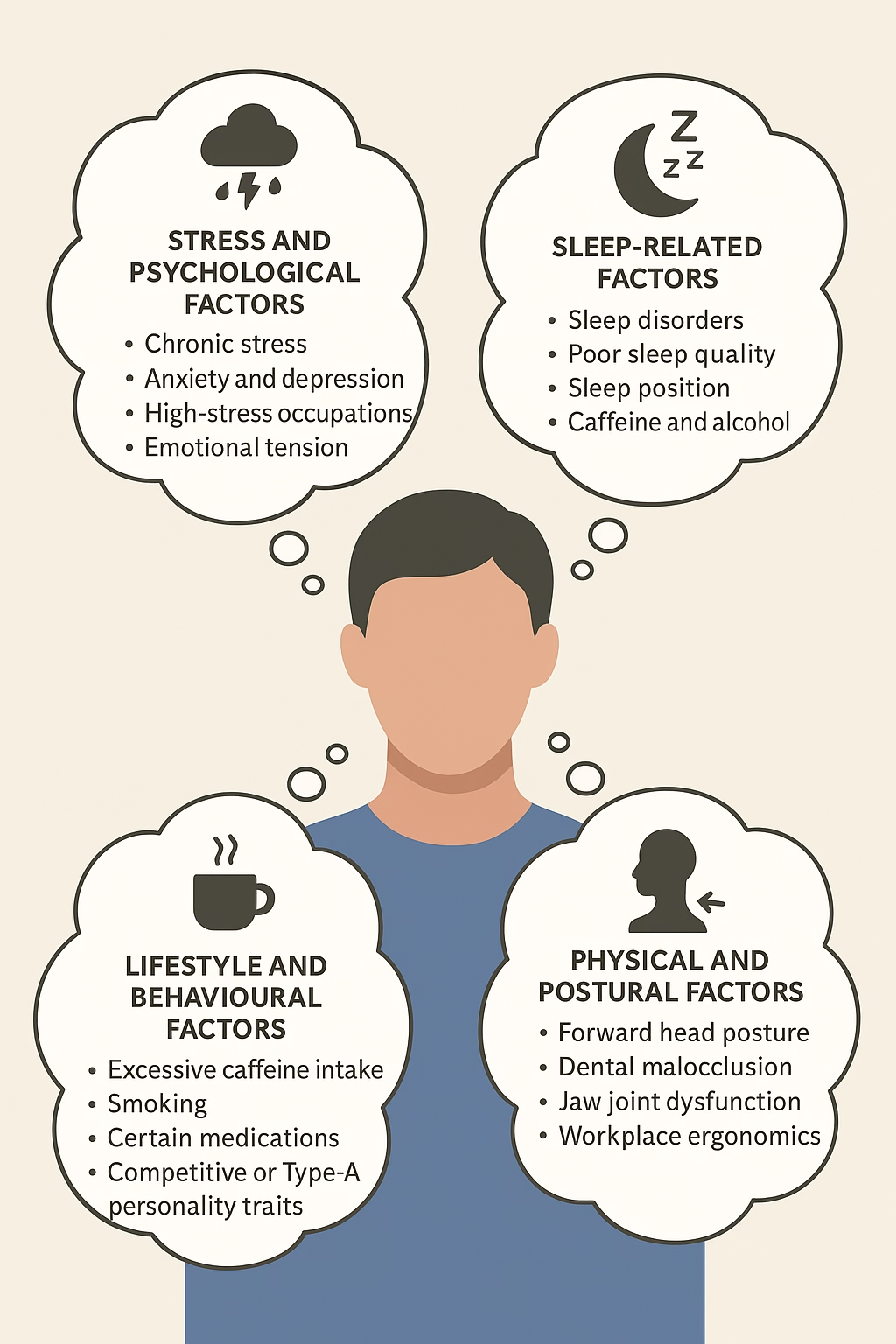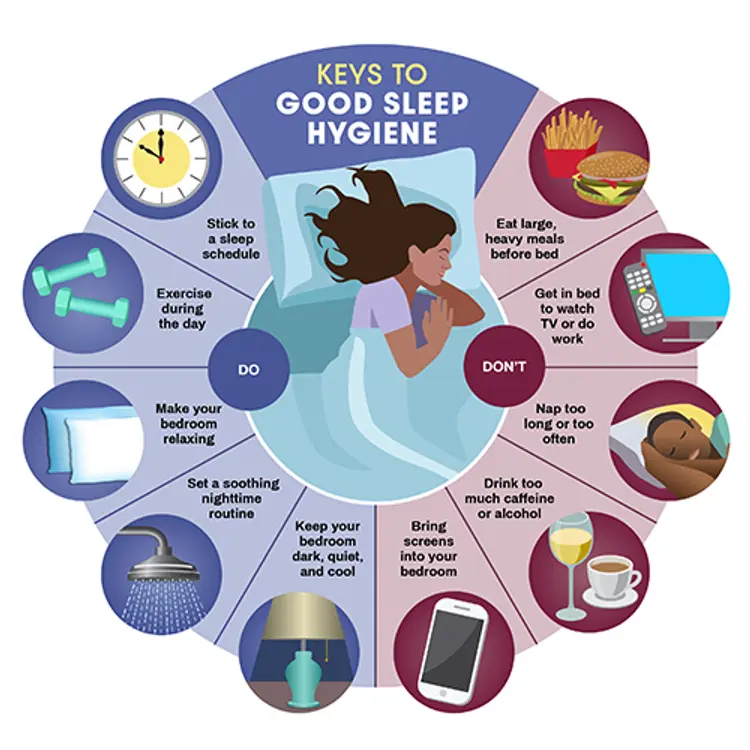
Involuntary teeth grinding or clenching.
Bruxism is characterized by involuntary grinding, gnashing, or clenching of teeth, typically occurring during sleep (nocturnal bruxism) or while awake (awake bruxism). Jaw clenching involves sustained contraction of the jaw muscles without tooth grinding movements.
Sleep Bruxism:
Awake Bruxism:
Bruxism and clenching create significant stress on the masticatory system, leading to:
The etiology of bruxism and jaw clenching is multifactorial, involving psychological, physiological, and lifestyle factors:

Physiotherapy plays a crucial role in managing bruxism and jaw clenching for several important reasons:
Physiotherapy interventions address the chronic muscle hyperactivity that characterizes bruxism. Through targeted techniques, physiotherapists can:
A key benefit of physiotherapy is its effectiveness in managing bruxism-related symptoms:
Physiotherapy offers a drug-free approach to managing bruxism, which is particularly important given that:
Physiotherapy for bruxism includes comprehensive stress management education:
Physiotherapists help patients develop awareness and control over clenching behaviours:
Physiotherapy treatment for bruxism and jaw clenching encompasses a variety of evidence-based approaches aimed at addressing muscle tension, improving jaw function, and breaking harmful patterns:
Physiotherapy for bruxism commonly includes exercises to reduce muscle tension and improve jaw flexibility. Clinical studies have reported significant decreases in muscle hyperactivity and clenching intensity with structured physiotherapy interventions. These exercises typically include:

Manual therapy techniques form a significant component of physiotherapy for bruxism, aiming to release muscle tension and trigger points. These include:
Clinical investigations have demonstrated that manual therapy combined with relaxation exercises can be more effective than splint therapy alone for reducing bruxism intensity and associated pain. These techniques work by reducing muscle hyperactivity and breaking the cycle of tension and clenching.
Addressing head and neck alignment is crucial in bruxism physiotherapy. Clinicians employ:
Physiotherapy incorporates various approaches to reduce stress-related muscle tension:

Addressing nocturnal bruxism requires specific interventions:
Comprehensive physiotherapy treatment for bruxism and jaw clenching utilizes a multifaceted approach, with specific techniques personalized based on detailed assessment of each patient's clenching patterns, stress levels, and contributing factors.
Recover faster, move better, and feel stronger with expert physiotherapy. Our team is here to guide you every step of the way.

The healing timeline for bruxism and jaw clenching varies depending on several factors:
Many patients experience initial symptom relief within the first few weeks of treatment:
With consistent physiotherapy intervention, most patients see substantial progress within 1-3 months:
Long-term success requires ongoing commitment to treatment strategies:
Recovery timelines vary significantly between individuals:
In summary, while some individuals may experience noticeable improvement in symptoms within 2-4 weeks, significant behaviour change and habit modification typically occur over 2-6 months. Long-term success depends on continued practice of stress management techniques and maintenance of healthy jaw habits.
Preventing bruxism and jaw clenching recurrence involves maintaining healthy habits and managing contributing factors:
Consistent stress management practices are essential for preventing recurrence:
Developing and maintaining conscious awareness of jaw position throughout the day:
Making long-term lifestyle changes to reduce bruxism triggers:
Addressing workplace and daily activity ergonomics:
Implementing consistent self-care routines:
Yes, physiotherapy can significantly help reduce nighttime teeth grinding (nocturnal bruxism). While complete elimination may not always be possible due to the unconscious nature of sleep bruxism, physiotherapy can:
Several physiotherapy techniques are particularly effective for daytime jaw clenching:
Breaking a clenching habit typically requires consistent effort over 2-6 months:
The timeline varies based on how long the habit has been present, stress levels, and commitment to treatment strategies.
Absolutely. Stress management is one of the most effective interventions for bruxism because:
Our comprehensive treatment programs include:
Don't let bruxism and jaw clenching impact your quality of life and sleep. Our experienced team is ready to help you break free from these harmful habits.
Book Your Specialized Bruxism Assessment Today:
Serving communities across Thornhill, Langstaff, Newtonbrook, Willowdale, North York, Markham, Richmond Hill, Concord, and North Toronto.
Conveniently located in the heart of Thornhill, offering flexible scheduling to accommodate your recovery needs.
Whether you're experiencing daytime clenching or nighttime grinding, our proven approach to bruxism management can help you return to pain-free days and restful nights. Contact us today to begin your journey toward healthier jaw habits and improved quality of life.
Written by Sophie Lee
Explore the latest articles written by our clinicians